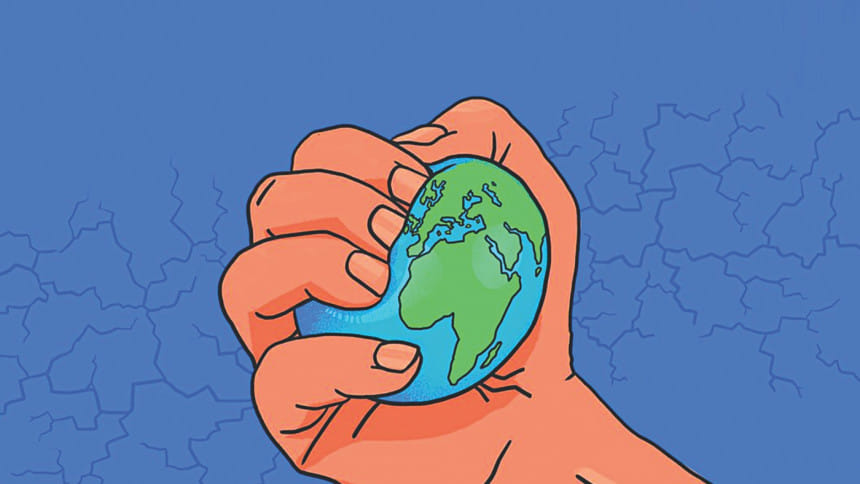Navigating Eco-Anxiety

In the age of social media, it is hard to escape bad news. The hurdle becomes even more difficult when the “bad news” entails the drastic effects of climate change taking their toll on our planet. The consumption of such news and statistics, takes a massive toll on our mental well-being as well. The onset of the climate apocalypse has given rise to a certain type of mental distress known as eco-anxiety, which is defined as “the chronic fear of environmental doom” by The American Psychological Association. As the name suggests, eco-anxiety has its roots in the deep fear that is incited by the effects of global warming and other forms of ecological/environmental destruction that might contribute to it. Day by the day, the anxiety is becoming increasingly commonplace in the population.
Some of the common disorders that branch out from eco-anxiety would be fear, paranoia, sadness, depression, insomnia, etc. Additionally, it has become increasingly difficult to follow through with the normal function of processing bad news and eventually dismissing it or moving on from it. Given the tremendous scale of impact that climate change will have on our surroundings and our planet as a whole, people simply cannot dismiss the alarming amount of scientific evidence. There have also been reports where people experience “burnout syndrome,” which is emotional, mental, and physical exhaustion brought about by high levels of stress and worry.
The anxiety can also find ways to seep into our daily activities. For example, a person may start evaluating the effect that their empty shampoo bottles might have on the environment. This spirals into more overthinking about their overall plastic consumption, which then leads them to think about the collective plastic output their family might produce within their lifetimes. This type of catastrophic thinking is prevalent in most cases of eco-anxiety. Unfortunately, the catastrophic thinking may soon prove to be our reality in this regard. A common response to tackling eco-anxiety among the younger generations is the decision to not have kids. Currently, a significant amount of people have decided that having kids will do more harm than good for the environment, given the alarming statistics about overpopulation in certain countries.
Even though tackling all forms of anxiety, including this particular brand, may be quite difficult, it doesn’t mean that there aren’t ways to cope with it. A helpful tip would be trying to implement environmentally conscious activities into our daily lives. This can include reducing plastic waste by simple methods: using tote bags instead of polythene bags, donating unwanted clothes instead of just disposing/shredding them, reducing the usage of plastic water bottles, etc. Additionally, the internet can help to provide more knowledge about methods for reducing waste, as there are increasing numbers of people who are trying to live a zero-waste lifestyle and are eager to help others in their journey to sustainable living.
Having said that, it should also be noted that not everyone has the luxury to resort to green alternatives. One of the main reasons plastic is so dominating in our lives is because it is cheap and also easily accessible. As a result, people from all classes can have virtually unlimited access to it, thus increasing the overall hazardous waste production of a region. Furthermore, a large chunk of the population may not be aware of the consequences of using non-biodegradable materials. Thus the responsibility is left for the individuals to try and raise as much awareness as possible regarding these matters, which might help in dealing with the anxiety while simultaneously spreading knowledge for a good cause.
All in all, if you can relate to this phenomenon, it is important to remember that you are not alone in feeling this way. Hundreds of thousands of people feel the same anxiousness when thoughts about the future of our planet pass them by. It is also important to remind yourself that you are not responsible for bringing forth all the good that the world needs. However, the world certainly needs all the good that you can offer.
Fatima Jahan Ena is a chaotically neutral egg with feelings. Fight her at [email protected]

 For all latest news, follow The Daily Star's Google News channel.
For all latest news, follow The Daily Star's Google News channel. 



Comments